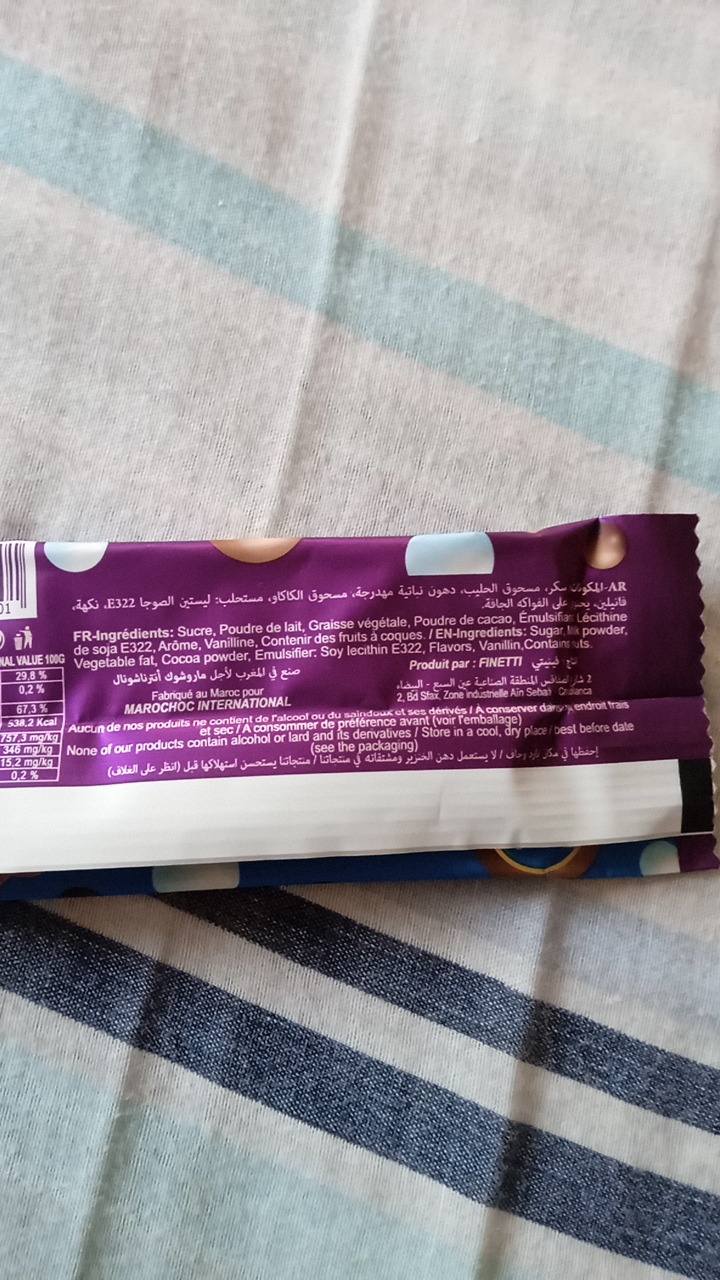
Barcode: 6111266701601
unknown
HALAL
📝 Reason: The product does not contain any Haram ingredients or E-codes listed as Haram. Ingredients marked as Doubtful (2) are due to unspecified sources or processing methods. Generally, plant-derived ingredients are considered Halal unless contaminated or processed with Haram substances. Islamic sources emphasize the permissibility of plant-derived foods unless specifically prohibited.
🏷️ Category: Chocolate
📄 Certificates: Vegetarisch
Ingredients:
Details
Is This Chocolate Product Halal?
If you’re a chocolate lover but conscious about your dietary requirements, you’ve likely questioned whether your favorite treats meet Halal standards. This article explores the Halal status of our featured chocolate product, particularly focusing on its ingredients and E-numbers.
Understanding Halal Status
For a product to be considered Halal, it must not contain any Haram (forbidden) ingredients or E-numbers (additives) that derive from prohibited sources. In our case, the chocolate product in question holds a Halal status, confirming it does not contain any Haram components.
Ingredient Breakdown
Let’s take a closer look at the ingredients:
- Sugar: This ingredient is plant-derived and generally regarded as Halal.
- Milk Powder: Also Halal, provided it has not been contaminated with Haram substances, making it safe for consumption.
- Vegetable Fat: Plant-derived fats are Halal unless they are processed with substances deemed Haram.
- Cocoa Powder: Known for its rich flavor, cocoa powder is plant-derived and typically considered Halal.
- Emulsifier Soy Lecithin (E322): Derived from soy, lecithin is also Halal.
- Arome: The source and processing methods of this unspecified flavoring are unknown, which adds some doubt to its status.
- Vanilline: A synthetic vanilla flavor known to be Halal.
- Contain Fruits to Coques: Depending on the exact composition of ‘coques,’ this is generally safe to consume, provided it refers to nuts or fruits.
- Flavors: Similar to Arome, the unspecified nature of these flavors introduces uncertainty about their Halal status.
- Vanillin: Again, this is a synthetic option that’s considered Halal.
Evaluating E-Numbers
Examining the E-numbers in our chocolate product reveals interesting insights. Out of all listed, only E322 from soy lecithin is easily identifiable and confirmed Halal. However, the flavorings present some ambiguity as their sources are not disclosed.
Conclusion on Halal Status
In summary, the chocolate product holds a Halal status since it does not contain any outright Haram ingredients. Most components derive from plant sources, traditionally adhering to Halal standards, with a couple of exceptions regarding unspecified flavorings, which should be consumed with caution.
Brand and Category Context
This particular chocolate falls into the category of confectionery, a segment increasingly accommodating Halal dietary needs. As the demand grows, many brands are opting for transparent ingredient sourcing and obtaining Halal certifications. Although this product does not have a specific brand name mentioned, its adherence to the Halal guidelines is commendable.
Certification
The product is also labeled ‘Vegetarisch,’ aligning perfectly with vegetarian diets, further reinforcing its suitability for those seeking Halal and Vegetarian-friendly options.
Final Thoughts
With its largely plant-based ingredients and verified Halal status, this chocolate treat can be a delightful indulgence. If you have more questions or concerns regarding Halal products or specific ingredients, always consult a knowledgeable source or authority on dietary laws.
